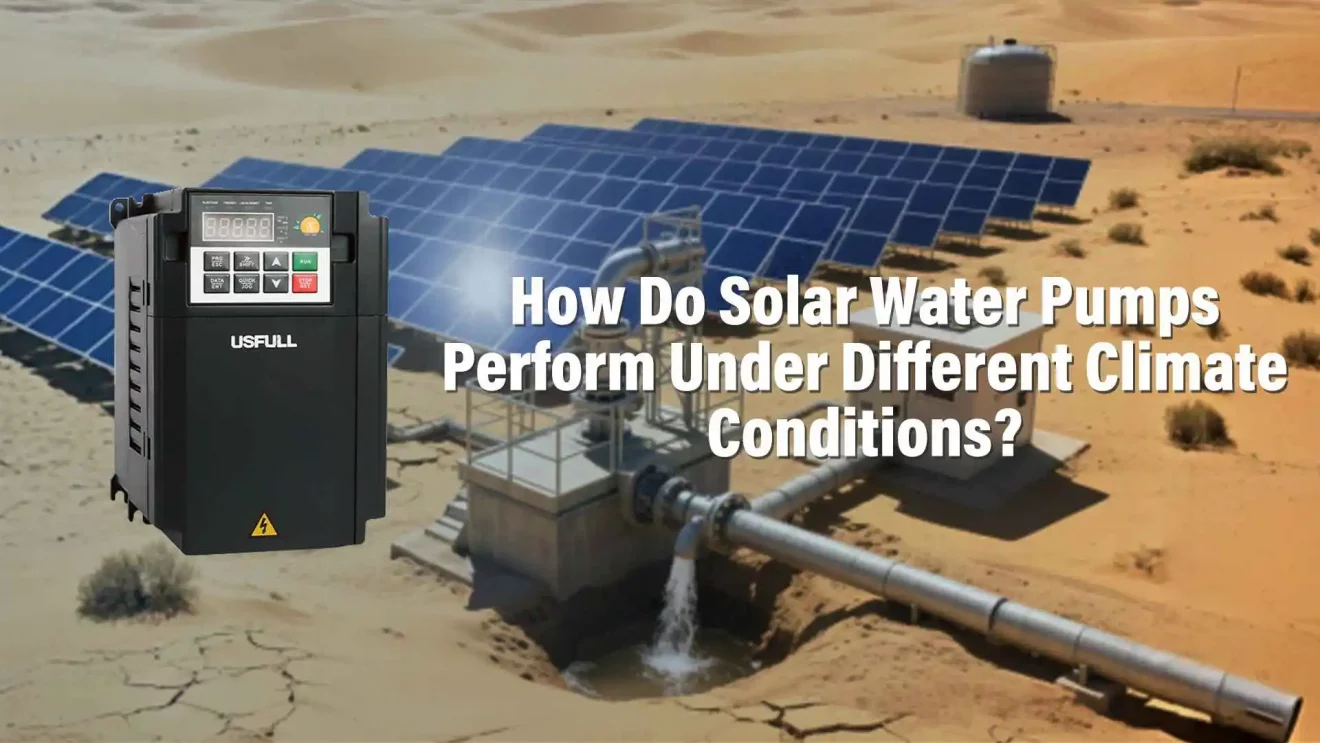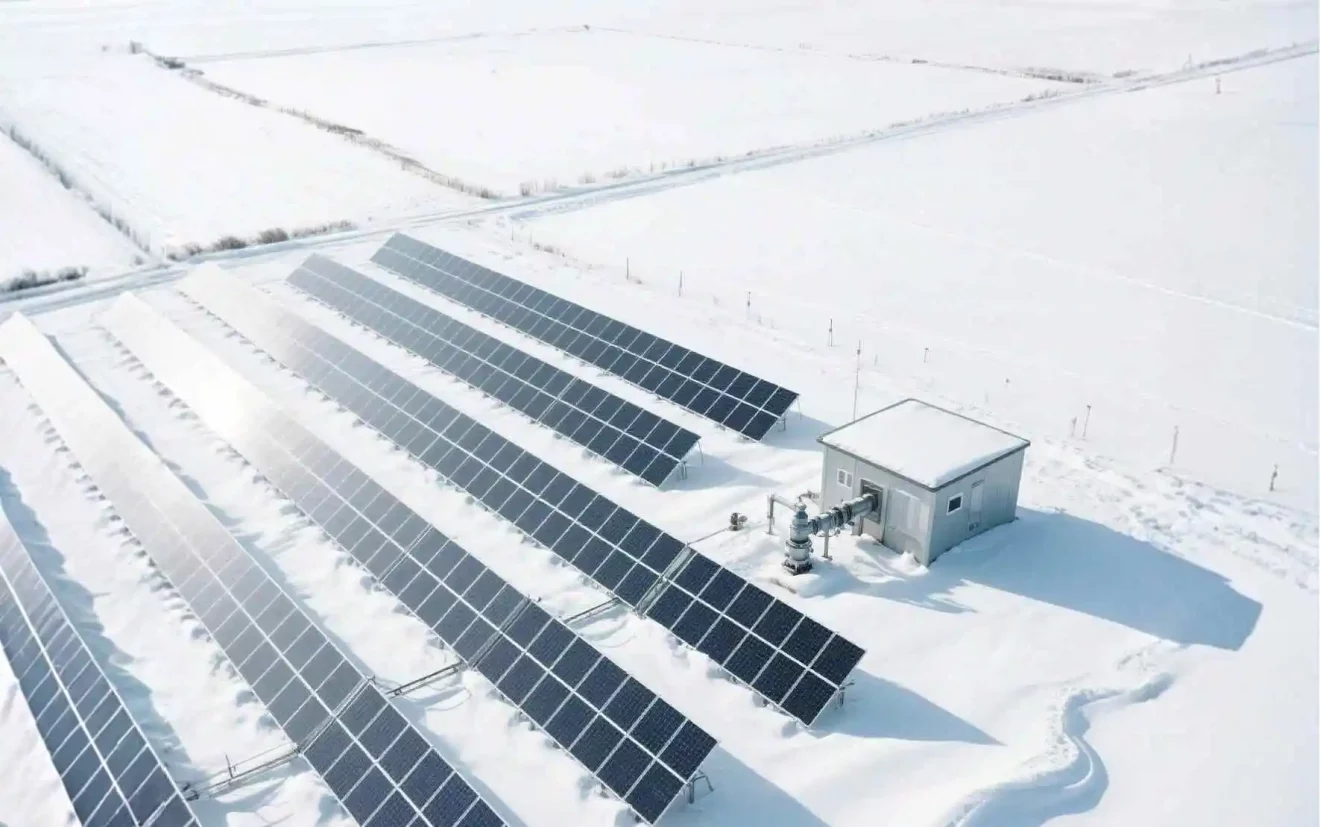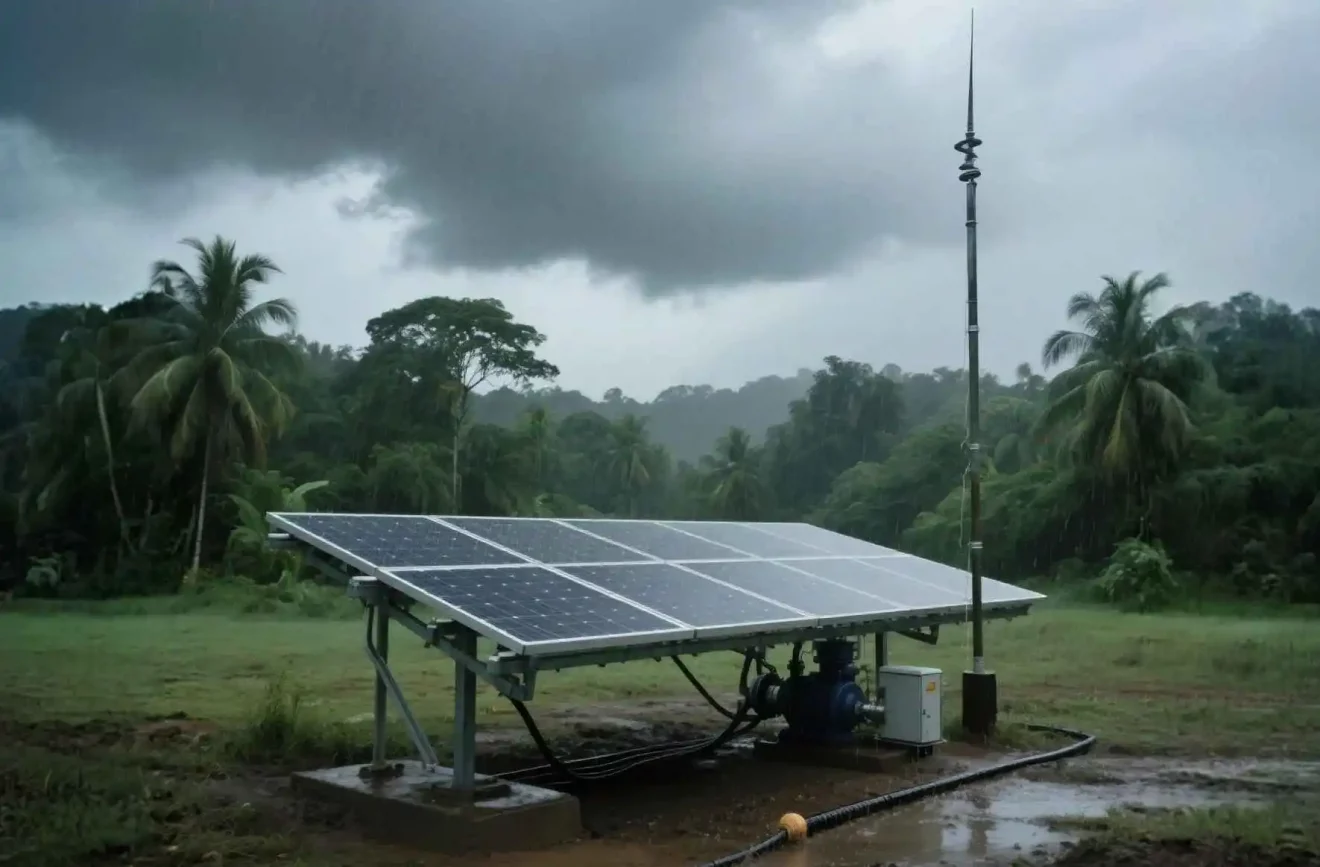Unstable climate leads to inefficient irrigation and unreliable water access. This can harm crops, delay farming, and increase costs. Solar water pump inverters offer a climate-resilient solution.
Solar water pumps perform differently across hot, cold, and humid climates, but with the right solar pump inverter and setup, they offer efficient and reliable water solutions worldwide.
Don’t miss how solar pump inverter adaptability can solve your local water challenges.

Performance in Hot and Dry Climate Conditions
In hot and dry regions, solar water pumps benefit from abundant sunlight but face challenges such as high ambient temperatures, dust accumulation, and hardware degradation. High temperatures can reduce the power conversion efficiency of solar panels, directly affecting pump performance. Prolonged heat exposure also accelerates the aging of internal components, particularly in the inverter and motor.
However, with a quality solar water pump inverter—especially one designed with thermal protection and advanced cooling—performance can remain stable even in temperatures above 40°C. As a professional solar pump inverter manufacturer in China, USFULL offers high-temperature-resistant inverters with intelligent MPPT algorithms that maximize solar harvesting during peak sunlight hours. Moreover, in dry regions where water is scarce, solar water pumps allow precise control of irrigation timing and volume, helping farmers conserve resources.
To optimize performance in these climates:
Choose inverters and pumps with proven high-temperature tolerance.
Implement automated control systems that adjust pump speed based on solar input.
Schedule regular maintenance to clear dust from panels and inspect components.
Performance in Cold and Snowy Climate Conditions
Cold and snowy environments present different hurdles. Low temperatures can severely reduce the efficiency of photovoltaic panels and even cause inverters to malfunction if not properly insulated. Snow accumulation blocks solar irradiation, and freezing water lines or pump chambers can damage hardware.
Yet, solar water pump inverters with low-temperature-start features, antifreeze protections, and weatherproof enclosures can operate efficiently in such conditions. For example, as a solar pump inverter supplier, USFULL provides systems with adaptive startup functions and robust casing, designed for sub-zero temperatures.
Farmers in cold areas can still benefit by using these systems to deliver water during shorter daylight periods or even to melt snow for irrigation. This is particularly valuable in regions with poor electricity infrastructure where solar becomes the only reliable option.
Performance is improved by:
Installing tilt-adjusted solar panels to prevent snow buildup.
Using heating elements or insulation jackets for piping.
Choosing inverters rated for -20°C or lower to ensure consistent startup.

Performance in Rainy and Humid Climate Conditions
Excessive humidity, rain, and the risk of lightning strikes characterize tropical climates. Moisture can infiltrate poorly sealed components, causing corrosion, short circuits, or inverter failure. Lightning can damage entire solar pump systems if surge protection is inadequate.
Despite these challenges, solar water pumps are highly functional in rainy seasons when paired with the right equipment. Rainwater availability reduces pressure on groundwater sources, and solar energy can still be captured through diffuse sunlight even on cloudy days.
As a solar pump inverter manufacturer, USFULL integrates waterproof designs, moisture-resistant PCB coatings, and built-in lightning protection in all our products. For instance, IP65-rated inverters can operate reliably even during prolonged monsoon exposure.
Tips for maintaining high performance:
Install surge protectors and proper grounding.
Choose inverters with certified waterproof ratings.
Schedule frequent inspections to detect and prevent moisture buildup.

Comprehensive Performance Evaluation and Adaptability Analysis
Across all climates—hot, cold, or humid—the key to success lies in selecting the appropriate solar water pump inverter that aligns with local environmental conditions. The adaptability of solar water pumps depends on three pillars: inverter quality, system design, and local climate knowledge.
As an experienced solar pump inverter supplier, USFULL customizes solutions for global markets, ensuring that our products meet various regulatory and environmental standards. Our systems come equipped with intelligent MPPT, over-temperature shutdown, anti-freeze controls, and waterproofing—all critical features that enhance climate adaptability.
In desert regions, water-saving irrigation is vital, so we prioritize heat resistance and energy conversion. In snowy areas, we emphasize reliable startup and cold resistance. In humid zones, we focus on sealing, anti-corrosion, and electrical protection. Thanks to modular system design, customers can scale or modify configurations based on seasonal changes.
Whether it’s for agricultural irrigation, household water supply, or emergency relief, solar water pumps powered by USFULL inverters deliver consistent results—no matter the weather.
